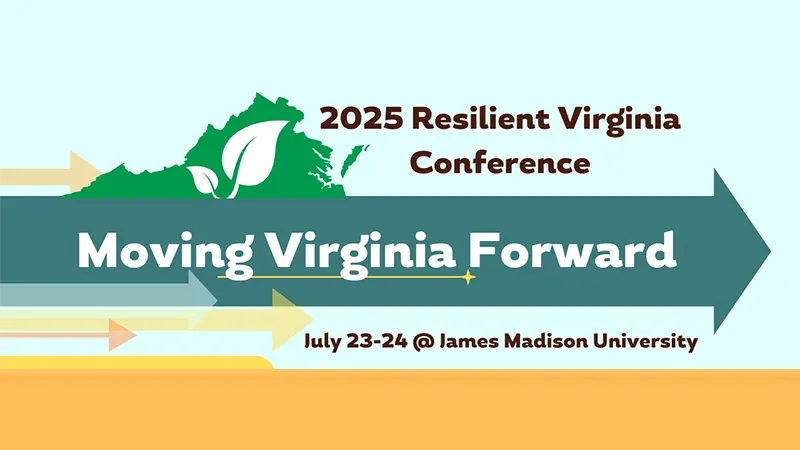
2025 Resilient Virginia Conference
The 2025 Resilient Virginia Conference will deliver tools, information, and networking opportunities to help you build resilience and move your community forward.
Accelerating resiliency planning in communities across the Commonwealth

The 2025 Resilient Virginia Conference will deliver tools, information, and networking opportunities to help you build resilience and move your community forward.
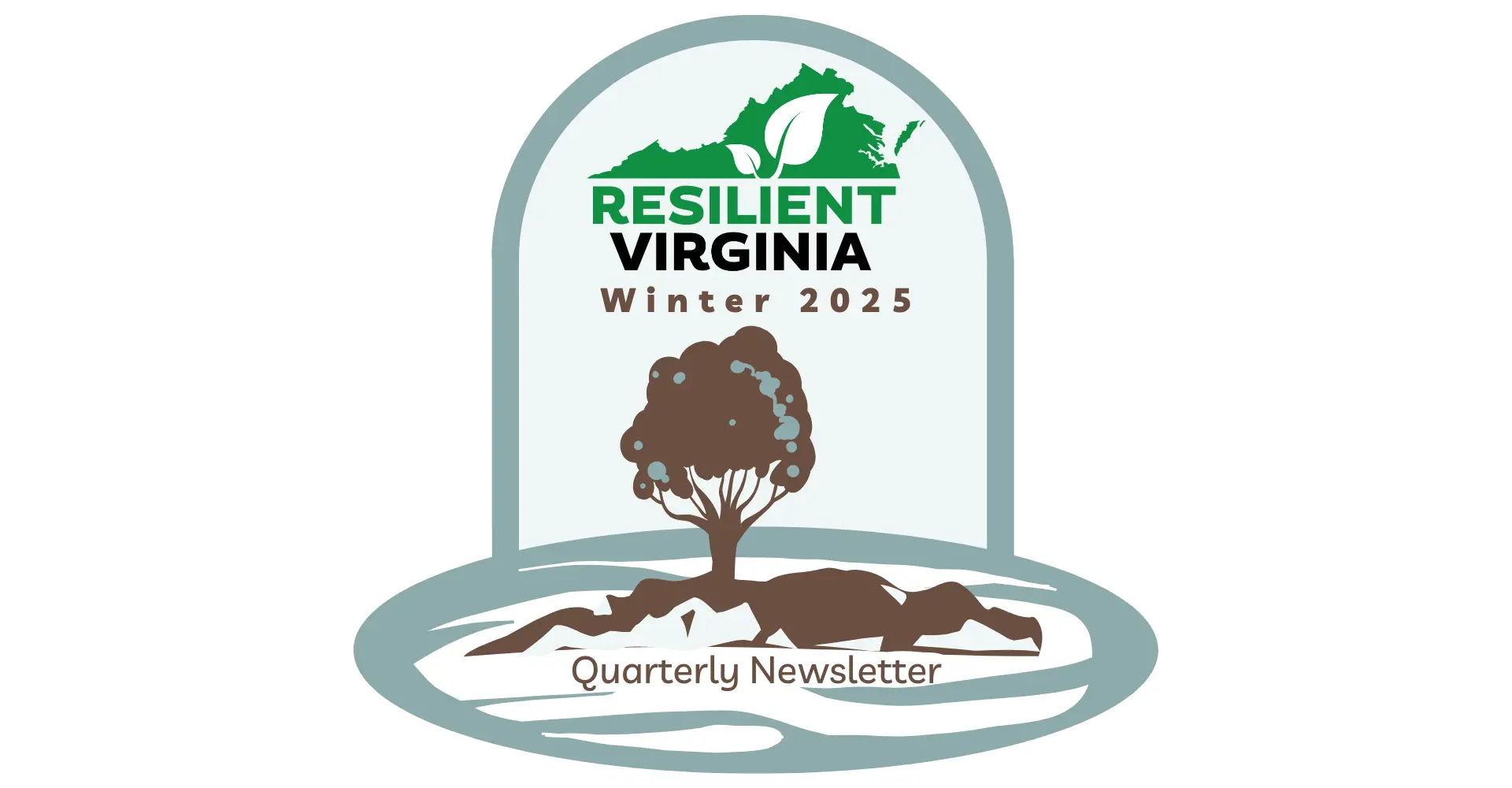
Meet Jessica Steelman, Resilient Virginia’s Executive Director … Resilient Virginia Events … Program and Project Updates … Board of Directors Updates … Community Flood Preparedness Fund Grants … VDEM Announces Application Period for BRIC and FMA Grants … GHHI’s Thriving Communities Grantmaking Program … Climate Smart Communities Initiative … more.
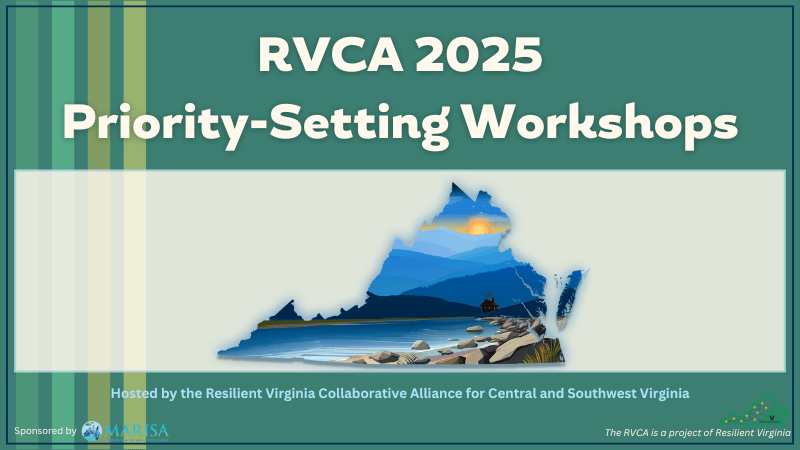
Strengthening the Voices of Rural Communities in Central and Southwest Virginia Resilient Virginia is proud to announce our RVCA 2025 Priority-Setting Workshop series for Central

Resilient Virginia has issued an RFP for a part-time Community Engagement Consultant for work in Lynchburg, Va.
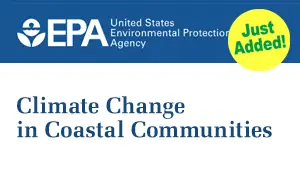
US EPA maintains a website that focuses on essential information for coastal communities planning for the effects of climate change.
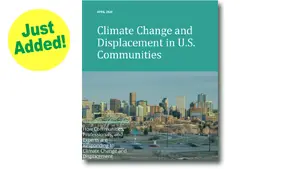
EcoAdapt conducted a survey with the Strong, Prosperous, and Resilient Communities Challenge to determine if and how people working to address displacement pressures are considering the effects of climate change. This survey is part of a broader project in collaboration with the Urban Displacement Project to better understand the intersections between climate change and displacement pressures.
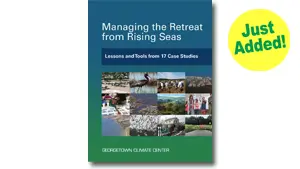
Managed retreat is the coordinated process of voluntarily and equitably relocating people, structures, and infrastructure away from vulnerable coastal areas in response to episodic or chronic threats to facilitate the transition of individual people, communities, and ecosystems (both species and habitats) inland.
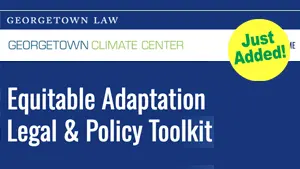
The Georgetown Climate Center maintains the Equitable Adaptation Legal & Policy Toolkit, which highlights best and emerging practice examples of how cities are addressing disproportionate socioeconomic risk to climate impacts and engaging overburdened communities.
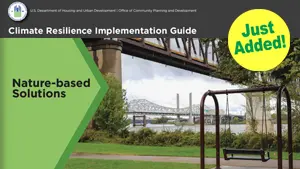
The Climate Resilience Implementation Guide provides step-by-step instructions to assist communities in implementing nature-based solutions. Grantees are encouraged to use this Guide for suggestions on how to effectively use Community Planning and Development (CPD)-funded programs and other resources to design and implement nature-based solutions.

The 2025 Resilient Virginia Conference will deliver tools, information, and networking opportunities to help you build resilience and move your community forward.

Meet Jessica Steelman, Resilient Virginia’s Executive Director … Resilient Virginia Events … Program and Project Updates … Board of Directors Updates … Community Flood Preparedness Fund Grants … VDEM Announces Application Period for BRIC and FMA Grants … GHHI’s Thriving Communities Grantmaking Program … Climate Smart Communities Initiative … more.

Strengthening the Voices of Rural Communities in Central and Southwest Virginia Resilient Virginia is proud to announce our RVCA 2025 Priority-Setting Workshop series for Central

Resilient Virginia has issued an RFP for a part-time Community Engagement Consultant for work in Lynchburg, Va.

US EPA maintains a website that focuses on essential information for coastal communities planning for the effects of climate change.

EcoAdapt conducted a survey with the Strong, Prosperous, and Resilient Communities Challenge to determine if and how people working to address displacement pressures are considering the effects of climate change. This survey is part of a broader project in collaboration with the Urban Displacement Project to better understand the intersections between climate change and displacement pressures.

Managed retreat is the coordinated process of voluntarily and equitably relocating people, structures, and infrastructure away from vulnerable coastal areas in response to episodic or chronic threats to facilitate the transition of individual people, communities, and ecosystems (both species and habitats) inland.

The Georgetown Climate Center maintains the Equitable Adaptation Legal & Policy Toolkit, which highlights best and emerging practice examples of how cities are addressing disproportionate socioeconomic risk to climate impacts and engaging overburdened communities.

The Climate Resilience Implementation Guide provides step-by-step instructions to assist communities in implementing nature-based solutions. Grantees are encouraged to use this Guide for suggestions on how to effectively use Community Planning and Development (CPD)-funded programs and other resources to design and implement nature-based solutions.
The 2025 Resilient Virginia Conference will deliver tools, information, and networking opportunities to help you build resilience and move your community forward.
The conference will include multiple opportunities for engagement via breakout sessions,…
This is a FEMA Region 3 Coffee Break Webinar
Learn more and register More details...
The National CASC is hosting a quarterly webinar series on the RAD (Resist-Accept-Direct) framework, a tool that helps resource managers make informed choices for responding to change. This series focuses on examples of RAD…
Join Climate XChange for their monthly State Climate Policy Network (SCPN) national call. This one-hour, once-a-month call is the perfect opportunity to learn about and discuss recent state-level climate policy progress across the country.…
While we’re saving the full reveal for later, here’s a sneak peek at the powerful topics and exciting experiences taking shape on this year’s Resilient Virginia Conference agenda.
We’re pleased to announce that Greg Steele, Virginia’s newly appointed Chief Resilience Officer, will deliver the opening plenary address at the 2025 Resilient Virginia Conference.
The Geos Institute plans to expand the Climate Ready America initiative into Virginia. As part of this effort, they are surveying local governments across the state to asses interest in establishing a Climate Innovation Center.
5 ways to take part in Resilient Virginia’s 6th biennial resilience conference
2025 Conference Set for July 23-24 … RVCA Launches Priority-Setting Workshops … Collaboration in Action … Resources and Funding … more.